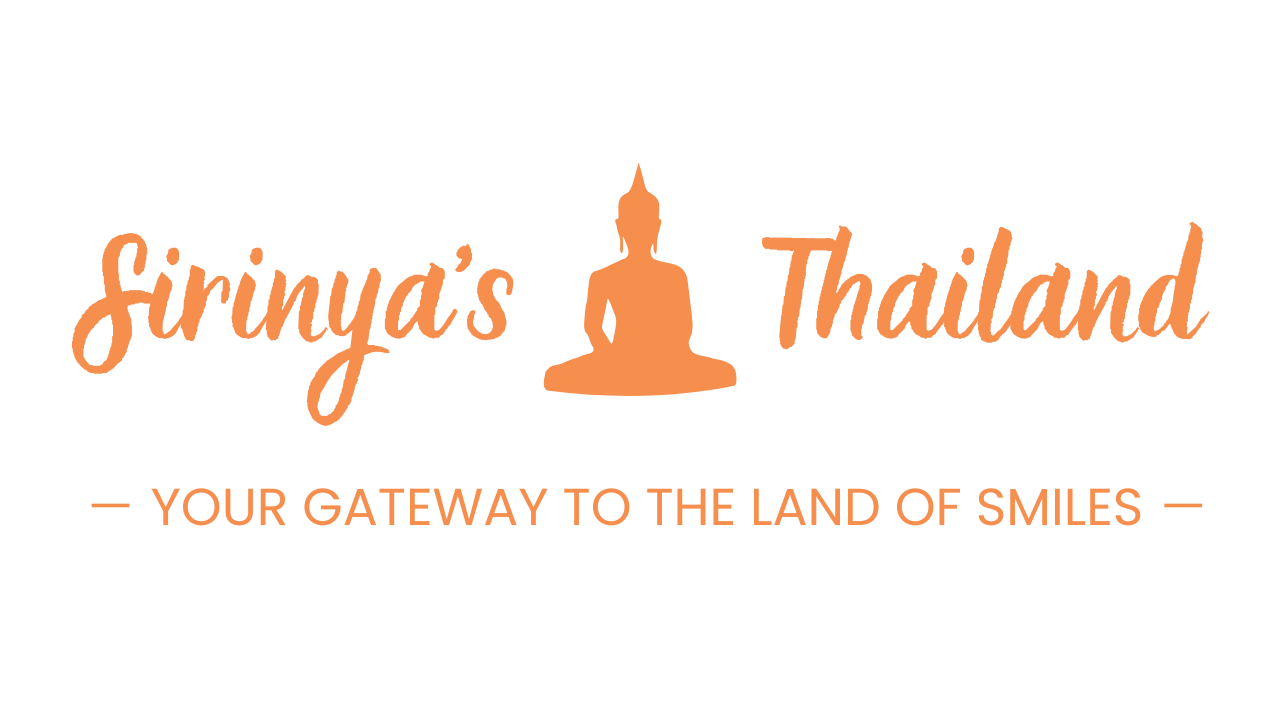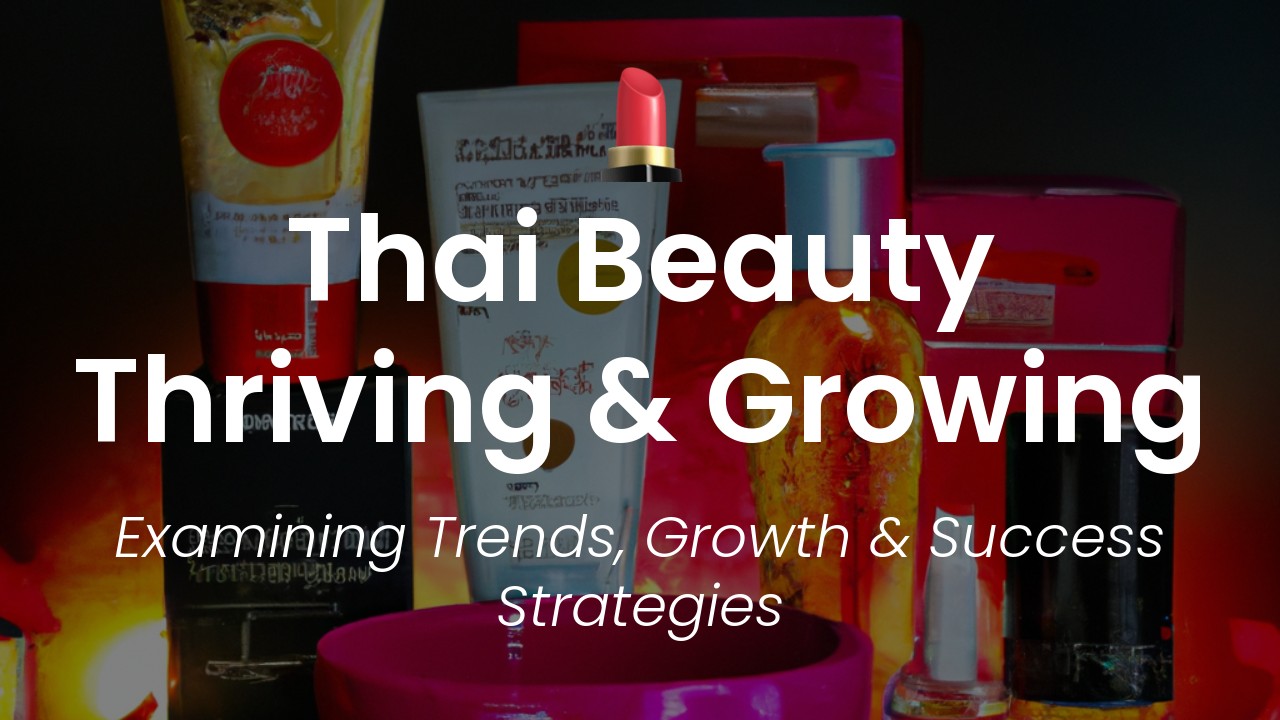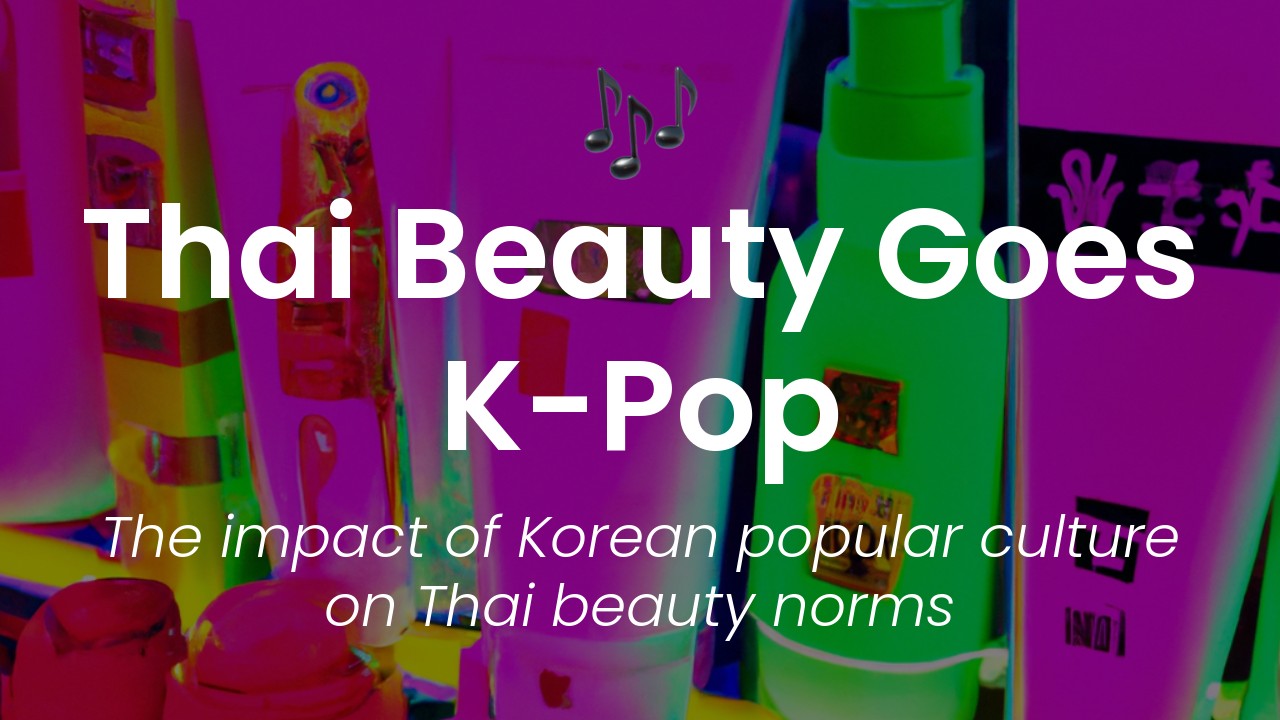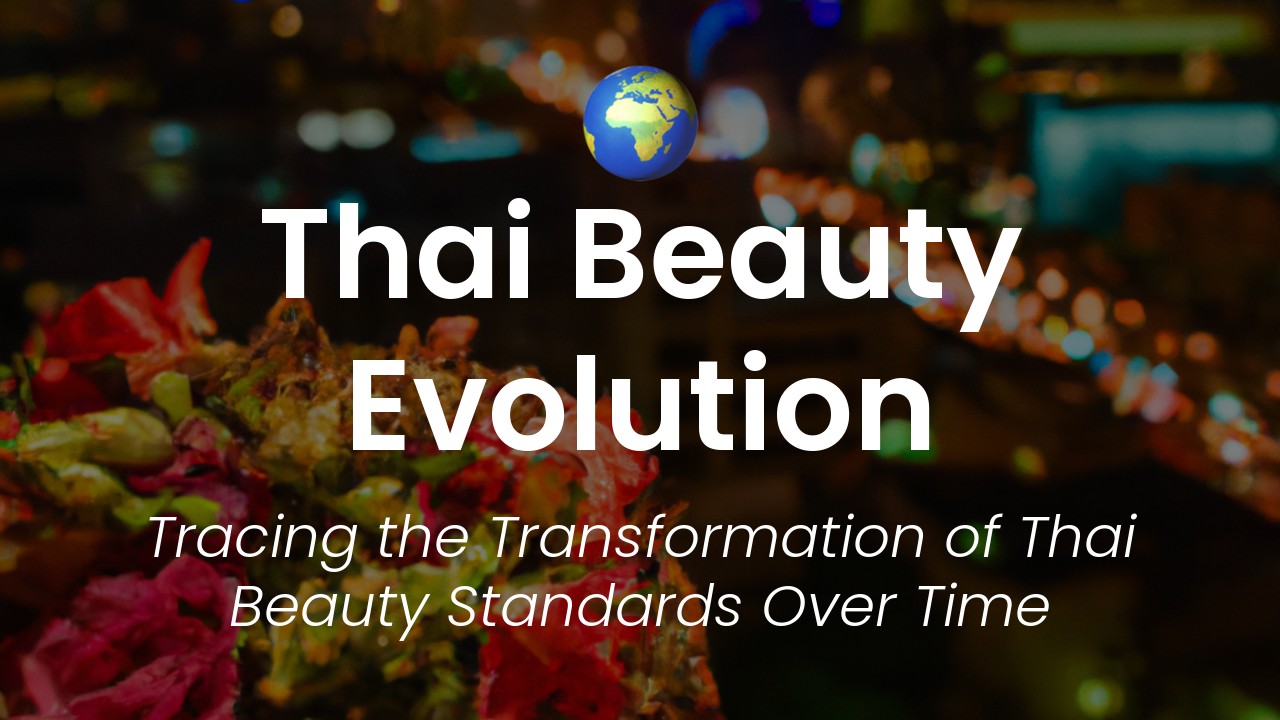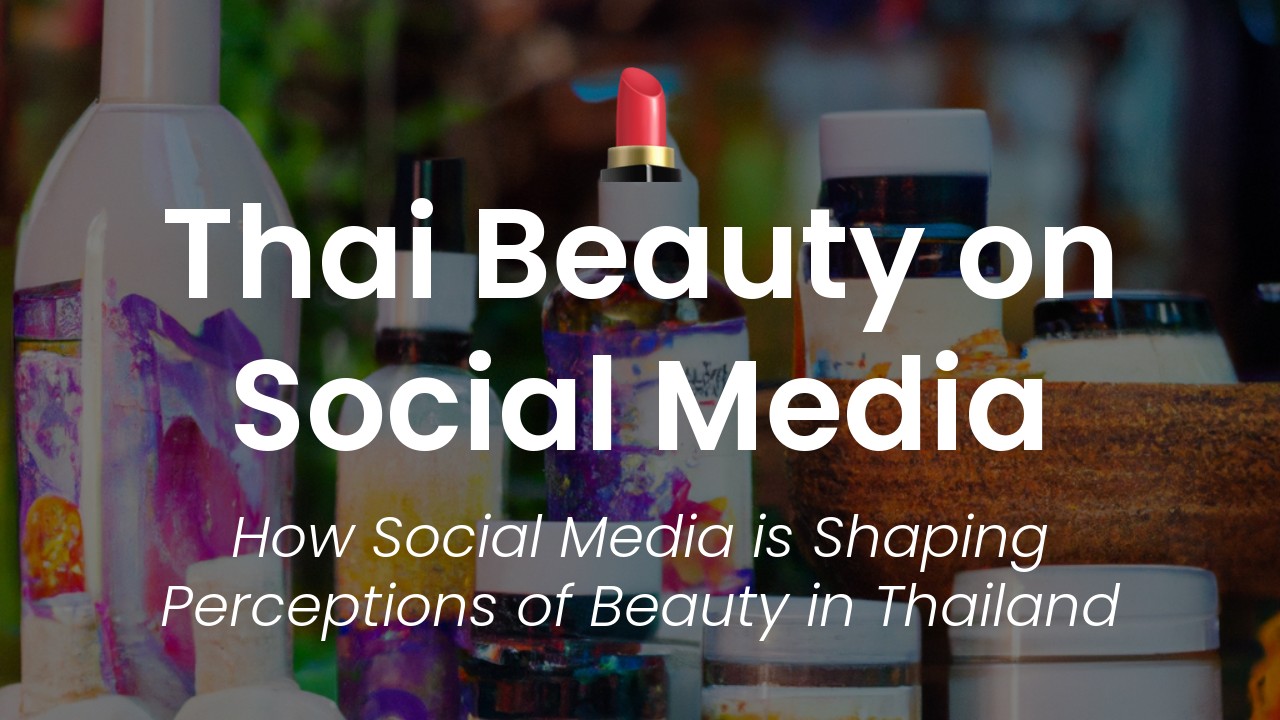Hello everyone, it's Sirinya here, and today I want to take you on a journey to explore the thriving beauty industry in Thailand. As a Thai woman, I have always been fascinated by the diverse range of beauty products and services available in my country. From traditional herbal remedies to modern skin-care technologies, Thailand has it all. In this article, I want to share my own experiences and knowledge about the beauty industry in Thailand, and give you a comprehensive analysis of how it has evolved over time.
First, let's talk about traditional Thai beauty practices. For centuries, Thai women have been using natural ingredients from their gardens and surroundings to maintain their beauty. Ingredients like turmeric, lemongrass, and jasmine have been used in various beauty treatments to maintain healthy and glowing skin. The use of traditional herbal remedies and massage techniques is still a popular practice in many parts of Thailand today, especially in local villages and communities.
However, as Thailand grew more prosperous in the modern era, the beauty industry began to evolve and incorporate innovative technologies and products from abroad. The rise of Western-style beauty trends and the influence of K-pop culture have also contributed to the changing beauty standards in Thailand. Today, you'll find a diverse range of beauty products and services in Thailand, from luxurious spas to high-tech skin clinics, all catering to the different beauty needs and preferences of Thai women.
In this article, I'll delve deeper into the different aspects of Thailand's beauty industry, from its traditional roots to its modern innovations. I'll also give you some insider tips on where to go and what to try if you're looking to explore the world of Thai beauty. So, join me on this exciting journey, and let's explore the vibrant and ever-evolving beauty industry in Thailand.
Historical Context of Thai Beauty Industry
The pursuit of beauty has been a part of Thai culture for centuries. Historical records show that Thai women used natural plant-based powders and oils to enhance their skin and hair. The popularity of Thai beauty rituals continued to grow and evolve with the influence of colonization and globalization.
The introduction of Western beauty standards led to the establishment of the first beauty salon in Thailand, Mona Beauty Salon, in 1922. It was the start of the beauty industry in Thailand. During the 1950s and 1960s, the emergence of Thai cinema and TV industry helped to promote beauty standards in Thai society.
The Thai beauty industry gained momentum in the 1990s with the rise of Japanese and Korean beauty trends. The demand for beauty products and services grew, and the industry expanded rapidly. The Thai beauty industry has since then been growing steadily and is now worth over $6 billion.
Modern Developments in Beauty Products
Thailand has a diverse range of natural resources that are used in the production of beauty products. The country is famous for herbs and spices such as turmeric, lemongrass, and ginger which are used in beauty products to revitalize the skin. Thai beauty brands have also been incorporating traditional Thai ingredients such as tamarind, camphor, and jasmine into beauty products.
Thai beauty products have gained popularity for their natural and organic ingredients. This emerging trend in the beauty industry has created many opportunities for Thai beauty companies to expand their product lines and target health-conscious customers.
Examination of Popular Beauty Trends
One of the most popular beauty trends in Thailand is skin whitening. Thailand has been one of the biggest markets for skin whitening products. According to a report by Global Industry Analysts, the global skin lightening market is projected to reach over $31 billion by 2024, and Asia-Pacific is the largest market for skin lightening products.
However, there has been an increase in criticism of skin whitening products in Thailand. Critics argue that skin whitening perpetuates the idea that lighter skin is more beautiful. This emphasizes the need for the Thai beauty industry to reconsider their approach to beauty standards and the use of skin whitening products.
Exploring Thailand's Cosmetic Surgery Market
Thailand has become a popular destination for cosmetic surgery, with Bangkok ranked as one of the top destinations for medical tourism. Thailand has over 300 hospitals and clinics that offer cosmetic surgery services. This has helped to establish Thailand as a leader in cosmetic surgery in the region, with an industry worth over $1 billion.
However, the cosmetic surgery industry in Thailand has also faced criticism for promoting unrealistic beauty standards and perpetuating insecurity and body shaming. The Thai beauty industry must address this issue and ensure that their practices promote positive self-image and self-love.
Beauty Pageants and Standards of Beauty
Beauty pageants have been an essential part of Thai culture for over six decades. The Miss Thailand Universe contest, the most popular pageant in Thailand, has produced two Miss Universe winners. Beauty pageants in Thailand promote beauty standards that are largely based on Western standards of beauty. The pageants also highlight cultural traditions and promote tourism in Thailand.
However, the pageant industry has also faced criticism for promoting unrealistic beauty standards and objectifying women. The Thai beauty industry must find a balance between promoting traditional Thai culture and promoting positive self-image and self-love.
The Role of Social Media in the Beauty Industry
Social media has played a significant role in the growth of the Thai beauty industry. Platforms such as Instagram and Facebook have allowed beauty brands to promote their products and engage with consumers directly. Influencers have also become an essential part of beauty marketing in Thailand, with many Thai influencers partnering with beauty brands to promote their products.
However, the use of social media to promote beauty standards has also faced criticism, with many critics arguing that it promotes unrealistic beauty standards and negatively affects body image. The Thai beauty industry must be aware of this issue and ensure that their practices promote positive self-image for all.
Challenges and Opportunities for Thai Beauty Entrepreneurs
The Thai beauty industry has come a long way, but it still faces challenges and opportunities. Thailand has a wide range of resources for the production of natural beauty products, but there is a need for more investment in research and development. Thai entrepreneurs must also find ways to promote Thai beauty products in the global market and diversify their product lines to cater to different demographics.
The Thai beauty industry must also address issues related to unrealistic beauty standards and negative body image. The industry must ensure that their practices promote healthy and positive self-image and promote diversity and inclusivity in beauty.
In conclusion, the Thai beauty industry has come a long way and is still thriving. The industry has grown rapidly, driven by the popularity of natural and organic products and the emergence of new beauty trends. However, the industry must address issues related to unrealistic beauty standards and negative body image. The Thai beauty industry has the potential to be a leader in promoting healthy and positive self-image and promoting diversity and inclusivity in beauty.
